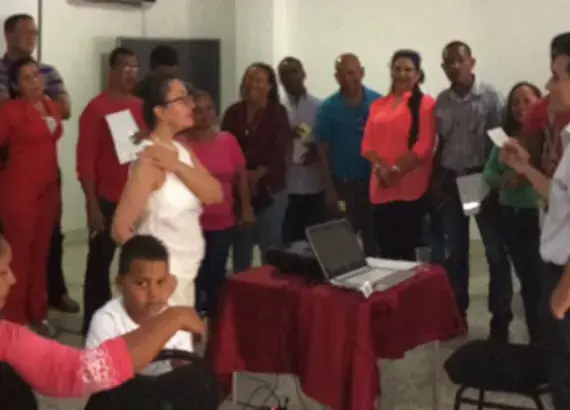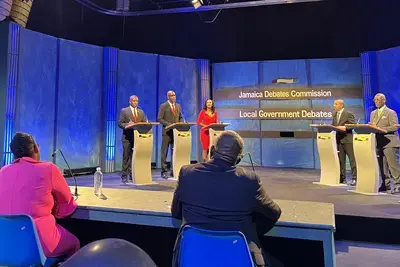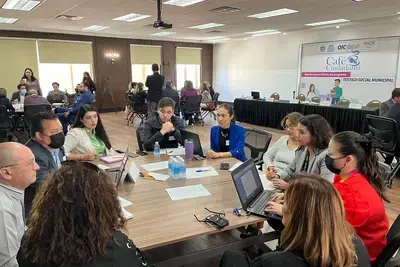
Success Story
Ahead of October Municipal Elections, Candidates Develop Policy Plans for Peace in Colombia
Colombia is home to one of the world’s longest ongoing armed conflicts, which has resulted in severe economic and social disparities, and victimized approximately 15 percent of the country’s population. Many analysts agree that, regardless of the ongoing peace negotiations between the government and the country’s largest guerrilla group, the Revolutionary Armed Forces of Colombia (FARC), peace must be constructed at the local level.
This October, citizens in Colombia will select governors and representatives to legislative assemblies in all 32 provinces, as well as mayors and municipal council members in approximately 1,100 municipalities. If a peace accord is signed, these elected officials would be the first to hold office in a post-conflict environment.
According to Colombian law, all mayoral and gubernatorial candidates are required to submit their government plans to electoral authorities. NDI is supporting this process by assisting candidates and political parties in developing plans that ensure they are equipped to address issues within their communities that would likely be key to an eventual peace agreement. Specifically, these plans would address citizen security, human rights, gender equality, social inclusion and justice for victims of violence.
In July, NDI organized one national and seven regional roundtables with government representatives and candidates from 11 political parties on the development of government plans. The national roundtable was held in the capital city of Bogotá, while the regional roundtables took place in seven departments that have been particularly affected by the armed conflict, including Bolívar, La Guajira, Meta, Nariño, Putumayo, Santander and Valle del Cauca.
At the event held in Villavicencio, Meta, a mayoral candidate for the municipality of Acacias recognized NDI’s contribution to improving candidates’ plans. “It was very timely to organize this type of event at this stage in the electoral process,” he said. “There are times when candidates have questions about registration issues, and then, given the quantity of issues that need to be addressed, we lose sight of the important aspects that must be covered.”
NDI produced a video about the development of government plans for mayoral candidates, which highlights key components of the plans, stages involved in creating a policy agenda and emphasizes the importance of a planning process that represents a diverse range of interests and in which a variety of actors are able to participate.
In consultation with local partners, NDI also prepared a checklist through which candidates could verify whether their government plans address post-conflict reconciliation issues and, if not, what steps they can take to include these issues. The checklist poses 90 questions on candidates’ policies and planning processes, including:
- How candidates propose to address victims’ rights, including provision of services, security and reparations, and how they plan to involve victims in the development and implementation of policies related to victims’ issues;
- If candidates propose specific initiatives to reduce gender, racial and ethnic inequalities and whether or not women, Afro-Colombians, indigenous people and minority populations played a substantive role in shaping those initiatives;
- Whether candidates propose initiatives to ensure government responsiveness to the needs of the lesbian, gay, bisexual and transgender (LGBT) community, create opportunities for their political participation and prevent discrimination against them.
- How candidates plan to coordinate with government agencies and community-based groups to protect human rights and promote citizen security
The checklist and video were made available to participants as internal party training tools, and are available to other parties and candidates on a website designed by NDI.
NDI conducted these activities with support from Canada's Department of Foreign Affairs, Trade and Development.
Published on August 24, 2015



